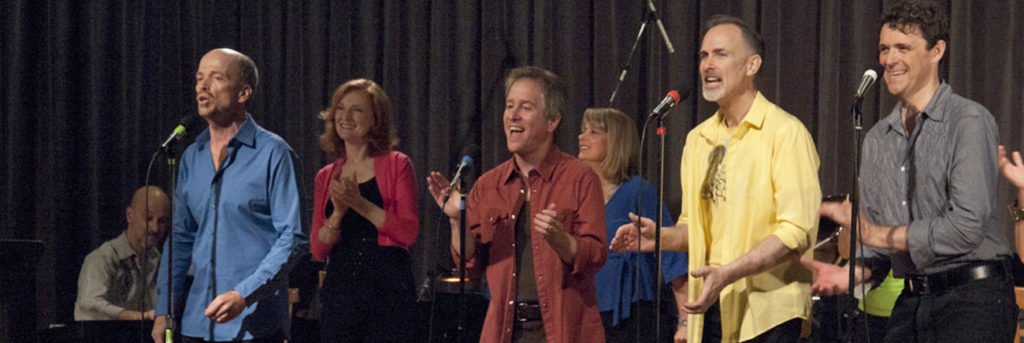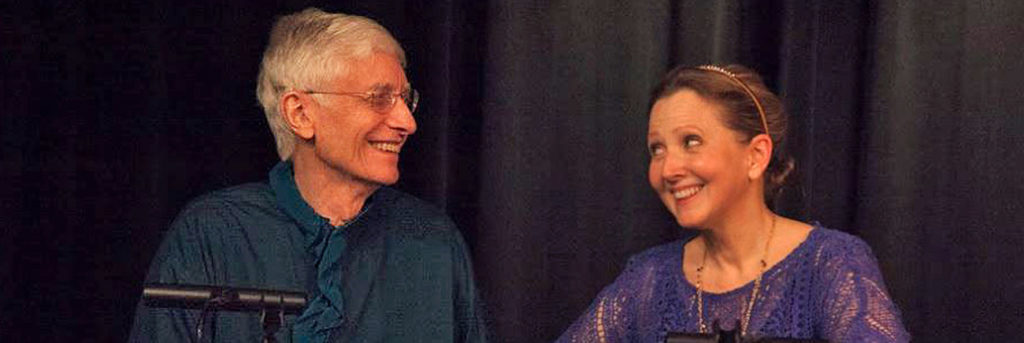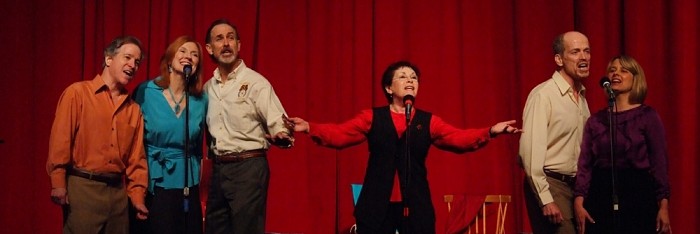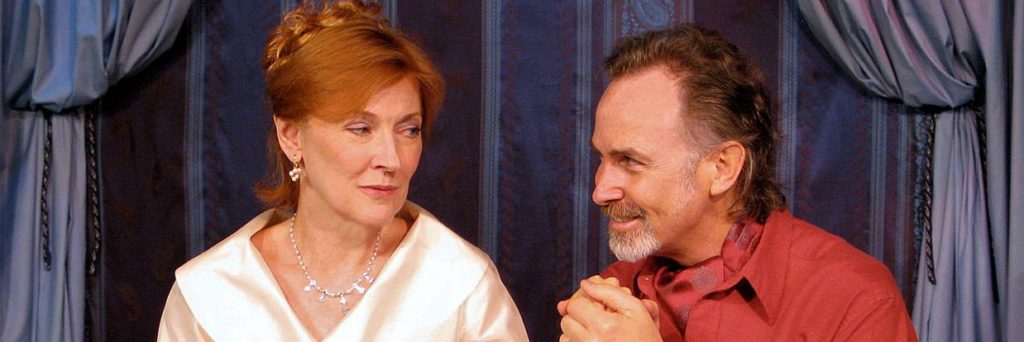Anne Fielding (1933—2023)
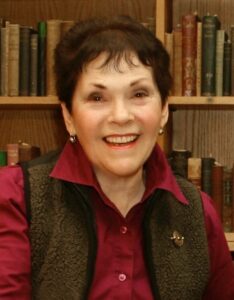
Statement from the Aesthetic Realism Theatre Company: It moves us very much to say formally on this website that Anne Fielding—one of the greatest actors in the world, and longtime director of this theatre company—has passed away, shortly before her 90th birthday. Read more
Anne Fielding was an Obie Award-winner for Distinguished Performance for the role of Sasha in the first American production of Chekhov’s Ivanov, which she was invited to recreate for the CBC television production of the play in Toronto. With the American Shakespeare Festival Company in Stratford, Connecticut, she appeared in productions of: Antony and Cleopatra, starring Katherine Hepburn; The Winter’s Tale; Richard II, starring Richard Basehart; and Henry IV, Part I, starring Roy Scheider, Hal Holbrook, and Sada Thompson. She played Juliet in the New York Shakespeare Festival school tour, directed by Joseph Papp, and Hermia in A Midsummer Night’s Dream in Central Park.
Anne Fielding had the honor to attend Aesthetic Realism classes taught by Eli Siegel beginning in 1953, and she studied in professional classes for consultants and associates taught by Chair of Education Ellen Reiss.
Ms. Fielding was born in New York City; graduated from the School of Performing Arts where she studied with Sidney Lumet; later studied acting with Michael Howard and musical comedy with Charles Nelson Reilly. She was a member of Actors’ Equity and AFTRA, and one of the authors of the book Aesthetic Realism: We Have Been There (“I Believe This about Acting”). She taught acting based on Aesthetic Realism at the HB Studio in Manhattan.
Off-Broadway at the Greenwich Mews Theatre, Ms. Fielding portrayed Mary Boyle in Juno and the Paycock by Sean O’Casey. Other Off-Broadway productions include Montserrat by Lillian Hellman; The Beaver Coat, by Gerhardt Hauptmann; Major Barbara by George Bernard Shaw; in summer theatre she played The Girl in The Fantastiks. Anne Fielding created the role of Doris Diminish in the musical Goodbye Profit System, by Martha Baird and Tom Shields, at the Aesthetic Realism Foundation.
Among roles Ms. Fielding has played in productions by the Aesthetic Realism Theatre Company of Eli Siegel’s lectures on the drama are: Nora in Ibsen’s A Doll’s House; Othello, in Shakespeare’s Othello; Lady Sneerwell and Sir Peter Teazle in Sheridan’s The School for Scandal; Petruchio in Shakespeare’s The Taming of the Shrew; Arnolphe in Molière’s The School for Wives; Fay Fromkin in Arthur Kober’s Having Wonderful Time; Cassius in Julius Caesar; the Nurse in Strindberg’s The Father.
She was teacher of the “Acting, Life, & the Opposites” class at the Foundation, and was one of the instructors—with Barbara Allen, flutist and Edward Green, composer—of The Opposites in Music class. She was also a consultant with There Are Wives and one of the teachers of the monthly Understanding Marriage! class at the Aesthetic Realism Foundation.
In 1956, she married the late Sheldon Kranz, Aesthetic Realism consultant, editor and poet, whose poems appear in the book Personal and Impersonal: Six Aesthetic Realists.
Bennett Cooperman

Bennett Cooperman is an Aesthetic Realism consultant and actor. He graduated from Syracuse University’s College of Visual and Performing Arts with a degree in acting.
Mr. Cooperman has had a lifelong love for acting, singing and dancing. At Syracuse Stage, he appeared in Bertolt Brecht’s Galileo opposite Howard Da Silva, and in Bye Bye Birdie. At the Berkshire Theatre Festival in Stockbridge, Mass., he appeared in William Inge’s Summer Brave and the musical Carnival.
Mr. Cooperman was a featured player on the daytime television series The Edge of Night.
An Aesthetic Realism consultant since 1987, he and his colleagues give consultations to men of all ages. In public seminars at the Aesthetic Realism Foundation, Mr. Cooperman has spoken about the lives and work of important, loved actors in history—each in relation to a central question of men’s lives. For example:
- What Makes a Man’s Life Large or Small?—includes a discussion of the great 19th century actor, Edwin Forrest
- True Pride: How Can We Have It?—taking up the life and work of Al Jolson
- Two Kinds of Anger—the wonderful Jackie Gleason can help us to answer that question
In productions by the Aesthetic Realism Theatre Company, Mr. Cooperman has appeared as Iago in Shakespeare’s Othello, both Cassius and Brutus in Julius Caesar, Caliban in The Tempest and Lysander in A Midsummer Night’s Dream. He has portrayed Mr. Puff in Sheridan’s The Critic and Charles Surface in The School for Scandal, and has been on the boards as the servant, Alain, in Molière’s The School for Wives.
Mr. Cooperman is a director of the monthly Saturday evening presentations at the Aesthetic Realism Foundation. He lives in New York City with his wife, Meryl Nietsch-Cooperman. You can visit their website.
Timothy Lynch (1957—2016)

In January 2016, our beloved colleague Timothy Lynch, actor, singer, and labor leader, died. We are tremendously affected by the loss of our great friend. Read more
Timothy Lynch was an actor and a labor leader. He was President of Teamsters Local 1205, representing working men and women throughout metropolitan New York. A union official for more than 25 years, he spoke publicly about Aesthetic Realism as the education most needed by every actor, every union official, everyone who wants to understand the U.S. economy, every human being. He learned from Aesthetic Realism that art and life are really inseparable. The justice that makes for good acting—justice to lines, a character, the playwright’s intent—is deeply the same as the justice all people deserve, and that includes economic justice. An actor wants to represent a character truly; and the purpose of a union is also to represent truly: to stand for, and fight for, and act in behalf of the hopes of workers.
Mr. Lynch appeared in many Off-Broadway shows and in regional theatre, as well as in a variety of daytime television series and commercials. His New York theatre credits included The Lower Depths, Invitation to a March, Abercrombie Apocalypse, Out of the Frying Pan, The Moon Is Blue, and the American premiere of Ibsen’s little known Love’s Comedy. With the Aesthetic Realism Theatre Company, he played such diverse roles as Shakespeare’s Hamlet, Marc Antony, and Sir Toby Belch; Sheridan’s comic characters Sir Joseph Surface, Mr. Snake, and Don Ferolo Whiskerandos; Sean O’Casey’s Captain Boyle; and more.
The Theatre Company’s widely acclaimed and frequently performed production of “Ethics Is a Force!—Songs about Labor” brings together his love of theatre, song, and the beauty of unions. He was passionate about the explanation in it, including the explanation of how justice can really win! Union members and officials have been learning from this powerful production through performances of it at union conventions and conferences in such diverse places as Las Vegas, New Orleans, Atlanta, Billings (Montana), Lake George, and NYC.
Mr. Lynch was invited to sing labor songs on many union picket lines. He sang the great labor song “Solidarity Forever” before thousands of union leaders and activists from around the country at the close of Teamster conferences, as well as singing the U.S. and Canadian national anthems at the opening of many conferences—and in a live broadcast on international television he sang the U.S. national anthem before the first-ever unionized boxing match in Las Vegas.
Timothy Lynch said that when he began to study Aesthetic Realism in 1983, not only did his life change tremendously for the better, but so did his acting. Testimony to that fact can be found in a New York Times review of a production he was part of shortly after he had begun to have Aesthetic Realism consultations: he said it was because of what he was learning in them, and the new knowledge and feeling he had, that he was able, for the first time, to give a character the fullness and authenticity that the reviewer describes him as giving.
Mr. Lynch studied at the New York Academy of Theatrical Arts, the Stella Adler Conservatory, the New York Theatre Workshop, and the Aesthetic Realism Foundation. Before becoming a Teamsters official, he was an active member of Actors Equity Association, Screen Actors Guild, and American Federation of Radio and Television Artists. He was very proud and happy to be married to Ellen Reiss, poet, critic, and Aesthetic Realism Chair of Education.
Derek Mali (1936-2021)

Actor and Aesthetic Realism consultant Derek Mali loved the theatre from an early age. He was born in New York City and educated at the Buckley School and Groton. He attended Yale and New York University, and graduated from Denison University with a BFA Degree in Theatre Arts.
Mr. Mali began working in the theatre as an apprentice at the Chase Barn Theatre in Whitefield, NH, during which he played the Crumbling Butler in Jean Anouilh’s Ring around the Moon, and Philip Clandon in G. B. Shaw’s You Never Can Tell. In NYC he co-produced the off-Broadway shows Call It Virtue (1963) and The Cat and the Canary (1965). He went on to become a company manager and a general manager, and managed over 40 Off-Broadway productions, including MacBird, Just for Love, America Hurrah, and the first multi-media musical, Your Own Thing; and on Broadway, Bob & Ray: The Two and Only. He was a member of Actors’ Equity and ATPAM (Association of Theatrical Press Agents and Managers).
Derek Mali had the honor to study Aesthetic Realism in classes taught by Eli Siegel from 1970-1978, and to continue his study with Ellen Reiss, Chair of Education. He was an Aesthetic Realism consultant for over 40 years, and presented seminars at the Foundation on such subjects as “Justice & Comfort: What’s the Relation?,” “The Mix-Up in Everyone about Coldness & Warmth,” “How Much Should a Man Care For—Besides Himself?” and ”Do We Know What’s Best in Us?–& What’s Worst?” With the Aesthetic Realism Theatre Company, he has taken part in Eli Siegel’s masterful considerations of many works: in roles including Bounderby in Dickens’ Hard Times, Joxer in O’Casey’s Juno and the Paycock, Malvolio in Shakespeare’s Twelfth Night, Brabantio in The Taming of the Shrew, and Reverend Wrigley in The Flattering Word.
He was happily married to biology teacher and Aesthetic Realism associate Sally Ross.
Carol McCluer

Carol McCluer was born in New Orleans and grew up in Brea, California. A graduate of CUNY with a degree in Education and Theatre, she appeared on the Julie Andrews Show; as a backup singer for Robert Goulet in Las Vegas; in a cabaret act; and touring South America with the recording group “Love and Kisses.” She has performed in television specials, national TV commercials, voiceovers, regional theatre, and played Melanie Sawyer on the soap opera All My Children, where she had the pleasure of working with Gwen Verdon.
Since 1989 Carol McCluer has worked with the Aesthetic Realism Theatre Company, playing roles such as Nora Helmer in A Doll’s House; Ophelia in “Shakespeare’s Hamlet: Revisited;” Lady Cunegonde in “Evil Seen Beautifully; or, Voltaire’s Candide” and Viola in “Absurdity in a Dukedom; or, Shakespeare’s Twelfth Night.”
Ms. McCluer is a member of the Screen Actors Guild, the Society for Children’s Book Writers & Illustrators, Friends of the Library, and the Professional Legal Trainers Group.
Ann Richards

Aesthetic Realism associate Ann Richards of Oswego, New York began acting in children’s classes at Oswego State University and received a BA in theatre from Binghamton University where she studied stage movement with Christopher Katt, comparative drama with drama historian George Wellwarth, and classical singing. Among the roles she’s played are: Sarah Brown in Guys and Dolls, Nurse in Loot, Sweet Young Miss in La Ronde, Bianca in Kiss Me Kate, and the English language premieres of Latin American underground drama The Story of A Kidnapping, and a farce, The Sorrows of Our First Lady by Ballesteros. After summer and dinner theatre in Rhode Island and upstate New York as Amy in Company, Lola in Damn Yankees, The Girl in The Roar of the Greasepaint, and Piglet in Winnie the Pooh, she moved to New York. She has studied acting with Julie Bovasso and Anne Fielding, and singing with Felix Knight and Carrie Wilson.
As a member of SAG-AFTRA and Actors’ Equity, Ms. Richards appeared Off-Broadway at the WPA Theatre in Album opposite Kevin Bacon. She was Connie Dayton in the daytime series Another World and made numerous commercials.
With the Aesthetic Realism Theatre Company she’s played Mary Boyle in Sean O’Casey’s Juno and the Paycock; Mrs. Linde in A Doll’s House; Alice in Wat Tyler; Bianca in The Taming of the Shrew, and Alice in George S. Kaufman’s You Can’t Take it With You. In musical presentations at the Aesthetic Realism Foundation and in its outreach program, she’s taken part in “Rock ‘n’ Roll, The Opposites and Our Greatest Hopes—A Celebration!,” “The Great Fight of Ego vs. Truth! Songs about Love, Justice, & Everybody’s Feelings,” and “Ethics Is a Force!—Songs about Labor.”
Ms. Richards taught children’s theatre, directing various plays such as Grease, Alice in Wonderland, Snow White and the Seven Dwarfs, and The Wizard of Oz. At educational conferences she has given workshops on the unparalleled success of Aesthetic Realism method in teaching dramatic literature and in finding the drama in all aspects of the English curriculum.
Karen Van Outryve

Karen Van Outryve began her study of Aesthetic Realism with its founder Eli Siegel. “Like many actors,” she says, “I was troubled by the feeling that Art and Life were so different. When I heard, ‘The resolution of conflict in self is like the making one of opposites in art,’ I knew I had to study Aesthetic Realism. That study has made my life better than I ever dreamed possible—and also encouraged me to get to greater depths in art.”
A poet and Aesthetic Realism consultant, Karen Van Outryve has performed a variety of roles with the Aesthetic Realism Theatre Company, from the comedies of Richard Brinsley Sheridan and Oscar Wilde, to the drama of Shakespeare. She is married to architect Anthony Romeo and together they are founding members of “Housing: A Basic Human Right,” advocating a nationwide solution to hunger and homelessness. As parents, they are also active in the fight to preserve public education.
Carrie Wilson
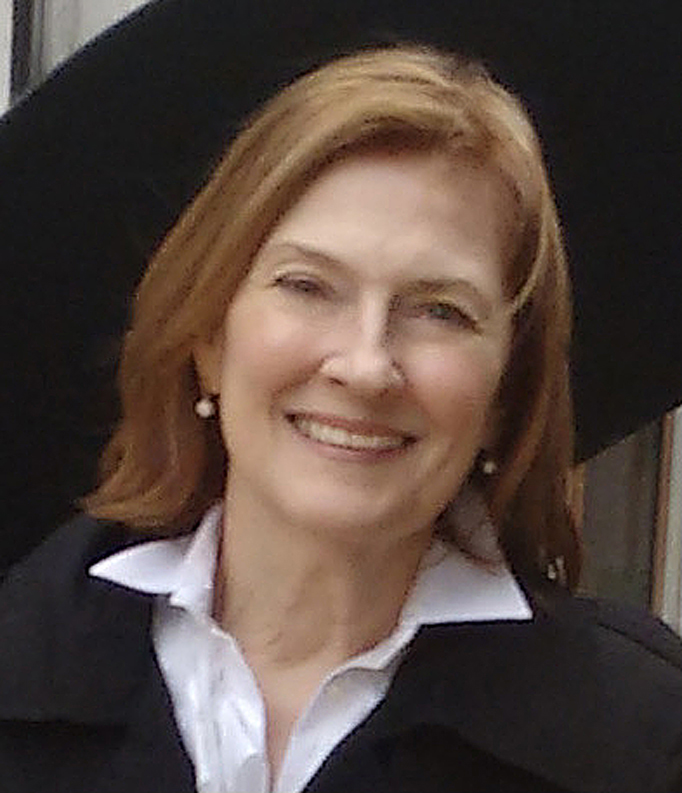
An Aesthetic Realism Consultant, Carrie Wilson teaches the class “The Art of Singing: Technique & Feeling.” She is a graduate of Barnard College, and of the Neighborhood Playhouse School of the Theatre, where she studied with Sanford Meisner. From 1969-1978 she studied Aesthetic Realism with its founder, Eli Siegel, and continues her professional study now in classes taught by Chairman of Education, Ellen Reiss.
Ms. Wilson originated the part of Miss O in the Off-Broadway, Carmines-Fornes musical, Promenade. She also created the role of Tina Schwartz in the Baird-Shields musical Goodbye Profit System. With the Aesthetic Realism Theatre Company, presenting some of Eli Siegel’s great lectures on the drama, she has appeared as Katherina in The Taming of the Shrew; Desdemona in Othello; Titania in A Midsummer Night’s Dream; roles in two plays by Sheridan—Lady Teazle in The School for Scandal and Tilburina in The Critic; Agnes in Molière’s The School for Wives; Laura in Strindberg’s The Father; Magda in Sudermann’s Magda; and Henrietta Brewster in Susan Glaspell’s Suppressed Desires. She has sung in such productions as “Ethics Is a Force!—Songs about Labor,” “The Civil War, Unions & Our Lives!,” in cabaret performances, and more—from New Orleans to Las Vegas, Atlanta to Montana.
A lyric soprano, she studied with Shirlee Emmons and Oren Brown, and attended the Goldovsky Opera Institute. Under the auspices of Mrs. Serge Koussevitzky and the Musicians Club of New York, Ms. Wilson was featured artist in a Rachmaninoff program at Lincoln Center Library. She sang music by Sir Edward Elgar, from The Dream of Gerontius, at a conference on the composer at the University of Birmingham, UK, and the music of Marcabru at the Medieval and Renaissance Music Conference at the Centre d’Études Supérieures de la Renaissance in Tours, France. In 2007 she presented recitals of British and North American music in Rosario, Argentina, accompanied by her husband, composer Edward Green. Together they also presented a paper at Ithaca College as part of a symposium on Music and Lifelong Learning, entitled “Aesthetic Realism and the Art of Singing.”
Ms. Wilson is a member of the National Association of Teachers of Singing, and is included in Who’s Who in American Art for her work as co-director of the Terrain Gallery. Among her published writings is A Brief History of the Terrain Gallery, which can be read at www.TerrainGallery.org.
Barbara Allen, Musical Director
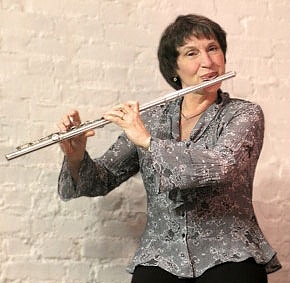
Barbara Allen graduated from the University of Illinois, Champaign-Urbana where she studied flute with Charles Delaney. She taught in the Chicago public schools and later in West Orange, New Jersey. Ms. Allen began her study of the education Aesthetic Realism with its founder, Eli Siegel in 1970. She is an Aesthetic Realism consultant, and with her colleagues conducts various classes, including The Opposites in Music Class at the Aesthetic Realism Foundation.
With Dr. Edward Green, composer and pianist, Ms. Allen has performed and presented discussions of important works from flute literature—for example:
- “What We Can Learn about Love from Johann Sebastian Bach’s Sonata in E-Flat”
- “Dignity and Abandon in Handel’s Flute Sonata in G Major”
- “Mozart’s Flute Concerto in G Shows the Victory of Self-Questioning”
You can visit her website here: BarbaraAllen.org.
Edward Green, Composer-in-Residence

From 1974 to 1978, Edward Green had the honor to study with Eli Siegel, and he continues his study of Aesthetic Realism now in classes taught by Ellen Reiss. Since 1980, Dr. Green has been on the faculty of the Aesthetic Realism Foundation, teaching the class “The Opposites in Music” with his colleagues Anne Fielding and Barbara Allen. As Composer-in-Residence of the Aesthetic Realism Theatre Company, he has composed overtures, songs, and incidental music, and has also accompanied several productions of the company as pianist and harpsichordist.
A prize-winning composer, Dr. Green’s music has been performed by orchestras, soloists, and chamber ensembles across the United States as well as overseas—including in Russia, the Czech Republic, Argentina, Australia, and England. Among his many large-scale works was his 2012 Symphony in Eb, the result of a consortium commission by thirteen of America’s leading Concert Wind Ensembles. He was also recipient of a Music Alive! award, granted conjointly by the American Symphony Orchestra League and the organization “Meet the Composer.” Among the labels on which Dr. Green’s music has appeared are Albany Records; VP Media (Italy); Arizona University Recordings, and North/South Consonance Recordings.
As pianist, Dr. Green frequently performs in concert with flutist Barbara Allen at the Aesthetic Realism Foundation. An interview of Ms. Allen by Edward Green recently appeared in The Hellenic Journal for Music, Education, and Culture (Greece/Internet). He is also Staff Composer at Imagery Films where he has collaborated with the Emmy Award-winning filmmaker Ken Kimmelman on several films, including What Does a Person Deserve? and Hot Afternoons Have Been in Montana—a film based on Eli Siegel’s 1925 Nation magazine prize-winning poem.
Edward Green’s PhD was earned at NYU, and his doctoral thesis dealt with the vocal music of Haydn and Mozart. Since 1984, he has been a professor at Manhattan School of Music, teaching courses in Ethnomusicology, Music History, Composition, and the Humanities. He also served, for five years, as Senior Specialist in American Music for the Fulbright Foundation. Under their auspices, and in conjunction with the Council for the International Exchange of Scholars, he conducted doctoral seminar at the Pontifical University of Argentina in Buenos Aires. Among his many scholarly publications are The Cambridge Companion to Duke Ellington (editor), and China and the West: The Birth of a New Music (editor and contributor). Originally published by Contemporary Music Review, it appeared in book form by Shanghai Conservatory Press in Chinese translation.
Edward Green has been a guest composer and lecturer at many academic and cultural institutions in the US and abroad. Among his talks were: “The Aesthetic Realism of Eli Siegel Explains the Beauty of Jazz and of Duke Ellington,” from 1991, given under the sponsorship of the Smithsonian Institution in Washington, DC; his 2004 presentation “Aesthetic Realism: A New Foundation for Interdisciplinary Musicology,” co-authored with anthropologist Arnold Perey and given at the First International Conference on Interdisciplinary Musicology, held at the University of Graz, Austria; and his 2014 lecture at the invitation of the Museum of the City of New York, “Duke Ellington, New York City, and Aesthetic Realism—a Celebration!”
Articles by Dr. Green from the perspective of Aesthetic Realism have appeared in many scholarly journals, including Music Scholarship (Russia), The Journal of Music and Meaning (Denmark), Jazz Perspectives, Choral Journal, The British Journal of Aesthetics (England); The Journal of Musicological Research, Popular Music History (England), Onagaku—the Journal of the Musicological Society of Japan, The International Review of the Aesthetics and Sociology of Music (Czech Republic), and The Journal of Dramatic Theory and Criticism.
Edward Green is married to Carrie Wilson, singer, actress, and Aesthetic Realism Consultant, and they make their home on Manhattan’s Lower East Side.
To contact Edward Green, click here.. Visit the website of Edward Green
Alan Shapiro, Accompanist & Arranger

Originally from Philadelphia, PA, Alan Shapiro is a singer, pianist, arranger and music educator. He has played jazz piano professionally for over 30 years, and was a choral director and music teacher in the New York City public schools for 28 years. He has also taught at Pace University and in the Oyster Bay school district on Long Island.
Mr. Shapiro began his study of Aesthetic Realism in consultations in 1985 and has studied with Chairman of Education Ellen Reiss in professional classes for consultants and associates since 2003. He has given workshops describing the Aesthetic Realism approach to music and music education at professional conferences around the country. At public seminars at the Aesthetic Realism Foundation, he has spoken on the music of Louis Armstrong, Duke Ellington, Sergei Rachmaninoff, Richard Wagner, Johann Sebastian Bach and others. (You can see two of these talks on Youtube, here and here.) A co-author of Teaching Music in the Urban Classroom, and Proceedings from the 2006 National Symposium on Multicultural Music, Mr. Shapiro was a keynote speaker for a special session on urban music education at the 2006 National Association for Music Education biennial conference in Salt Lake City. At the International Conference on the Blues (Delta State University, Cleveland, MS) he presented “Why Do the Blues Make Us Feel So Good?” (2014), and “The Blues and Duke Ellington: Tradition Honored and Transformed” (2015).
A graduate of Wesleyan University (BA) and the Manhattan School of Music (MM), Alan Shapiro lives in New York City with his wife, Leila Rosen, who is an English educator and Aesthetic Realism Associate.
See his website at www.AlanShapiroMusic.net.

